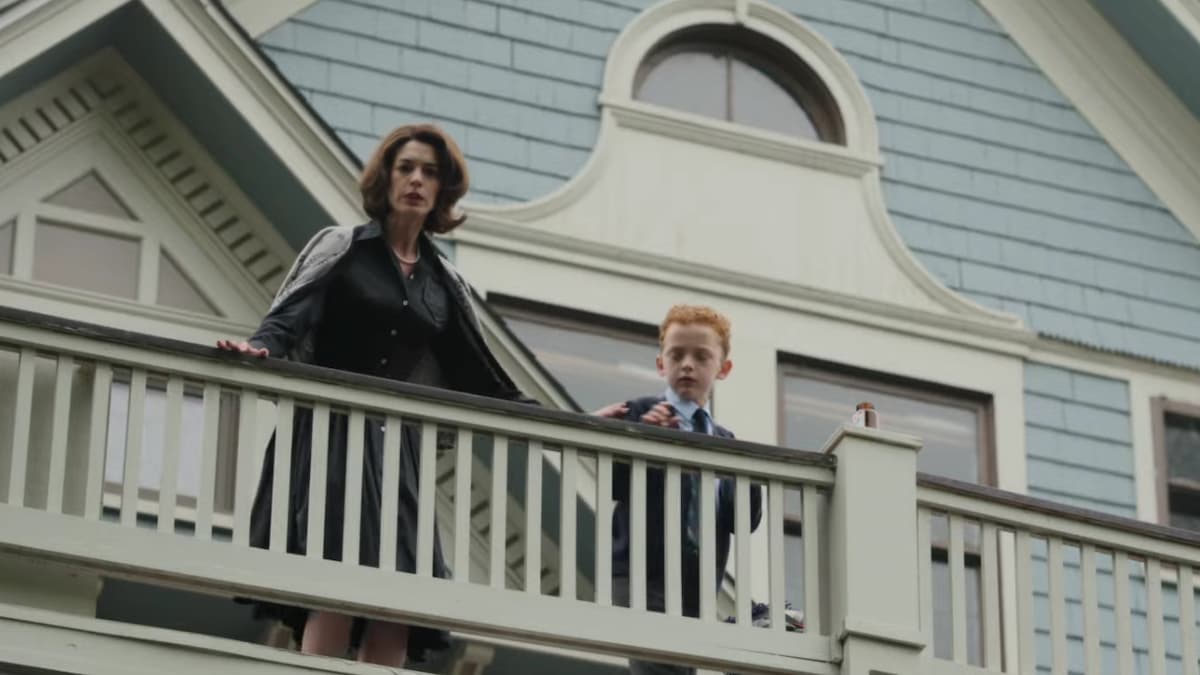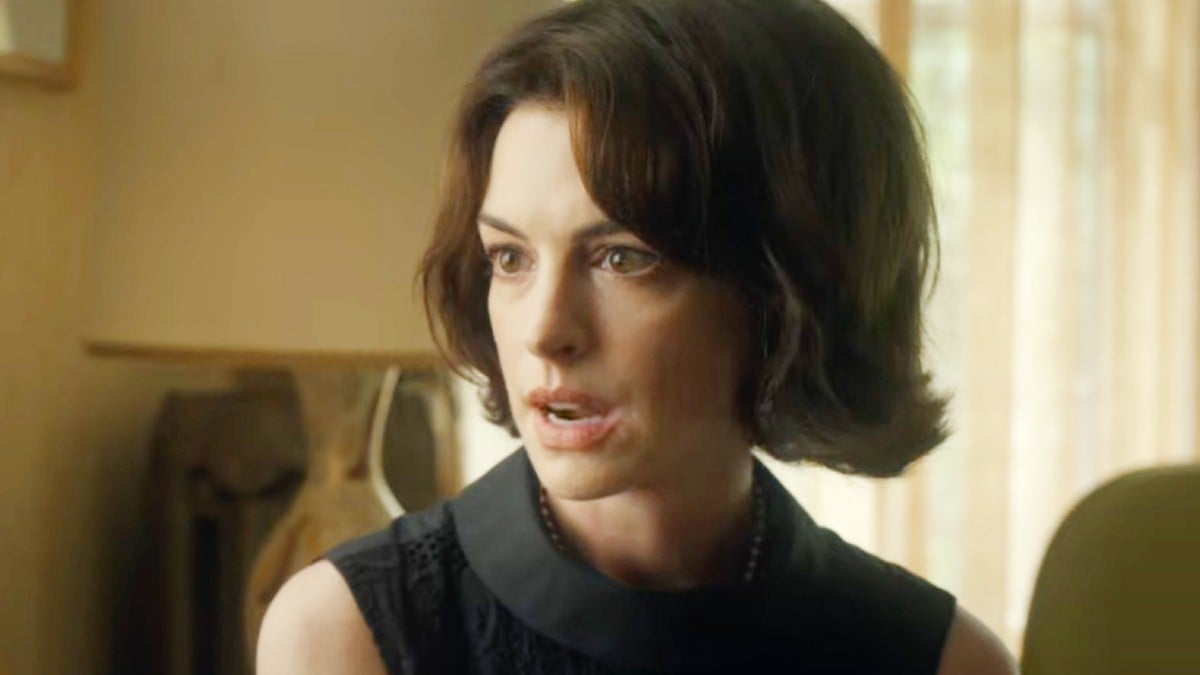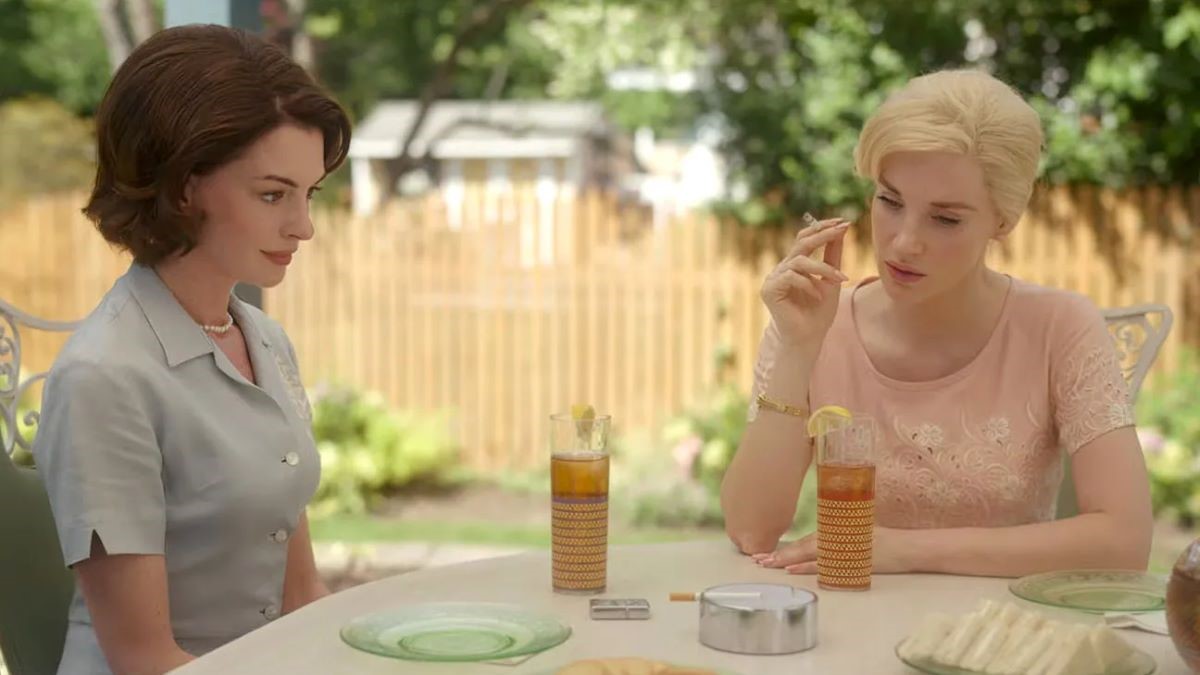Whenever the world catches wind of an American remake of a European film, a distinct collective wince can be heard by those who listen closely. Such enterprises are no less worthy than blatant IP shilling, or deeply contrived vanity projects, but they’re not more worthy of the benefit of a doubt, either.
Mothers’ Instinct is a remake of the 2018 French-language film of the same name, which by all appearances was in absolutely no hurry to be remade. Interestingly, the film seems aware that its existence was entirely unnecessary, because it doesn’t seem to have much interest in anything outside of letting Anne Hathaway and Jessica Chastain do Anne Hathaway and Jessica Chastain things; an attack plan that works far, far better than it should, probably.
Hathaway and Chastain, who also produce the film, are as eminently watchable as one might expect. They’re so watchable, in fact, that one may feel compelled to forgive the script, whose dire characterization ability is matched only by its peculiarly unwieldy relationship with time.
Hathaway and Chastain star as Celine and Alice; two housewives and mothers who seemingly lead the most perfect lives (at least, insofar as a woman in the 1960s could). They live in beautiful houses right next door to one another, and their friendship is almost as magical as that between their sons. But when an unthinkable tragedy strikes, emotional demons rise up in its wake and begin to push both households to their limits.

Mothers’ Instinct would be dead on arrival if not for the performances of its leads; even if just one of them were removed from the equation, the film would lose all of its footing. They bring the mostly-untapped profundity of Mothers’ Instinct to life, subtly conveying how each and every incident warps their characters’ minds, and punctuating each development with body language that physically pronounces each twist. Both Hathaway and Chastain utilize this escalating one-two punch for every layer of tension that gets unpacked, and they deliver a brilliant watch, both in their solo moments, and when they’re playing off of one another.
There are also distinguishing details to their respective turns, of course. Chastain inhabits Alice’s dialogue with such patience that it becomes the catalyst through which her character is understood; a woman whose struggles were in play long before the events of the film, which makes her relationship to loss and power both sturdier and more perverted than Celine’s. Hathaway’s soft throttle upon Celine allows her to operate in the more extreme margins of Mothers’ Instinct‘s thematic identity, as she transforms from cool neighborhood mom into something more sinister. This is easy to buy into, with Hathaway at the helm, and the emotional stages of Celine are absolutely crucial to making this film work.
The script wasn’t going to help it work, in any case. Chastain manages to chisel a victory out of it, but Mothers’ Instinct‘s dialogue is particularly egregious. Some of it would feel more at home in an episode of reality television, and elsewhere it conveys theme in a way that’s so on-the-nose (the themes aren’t nutritiously unpacked to begin with, to boot), that it actually harms our ability to understand these characters in a way that’s truly compelling.
Perhaps a more interesting failure, though, is Mothers’ Instinct‘s twitchy plotting. At 94 minutes, the film is a brisk watch, but unfortunately, that’s to its detriment. A fair chunk of the narrative beats aren’t given enough room to rise, simmer, and sit with us long enough to digest, which is in turn harmful to the film’s storytelling. A longer version of Mothers’ Instinct may have found a way to use each incident to better prod at its ideas, its plot, and its tension all at once, but this one seems content on settling for just one of the three, and rarely to any great effect.

At the same time, Benoît Delhomme’s direction is nothing to sneeze at, especially considering that it’s his directorial debut. Mothers’ Instinct‘s strengths are entirely derived from the way it presents its material, rather than the material itself, and the way Delhomme constructs this tale is no small part of that. Under his hand, Alice and Celine’s neighborhood darkens in tandem with the two women; he finds grim reality behind sunny illusion, and then juxtaposes them without untangling them from one another, which is markedly impressive. It may be Hathaway and Chastain’s show, but Delhomme’s contributions are felt and welcomed in equal measure.
It’s clear as day what Hathaway and Chastain saw in the project, because in the roots of this ugly weed of a script is a deeply compassionate, if warped, examination of the human condition, specifically that of a woman living in the 1960s. There’s a fascinating parallel somewhere in here between the day-to-day effects of the patriarchy, and more esoteric complications — when life events and emotions create new realities for us, they may prove unkind even to our closest friends, no matter how much we still love them. Mothers’ Instinct also questions how Alice and Celine understand their value as people, both in relation to each other, and in the context of the wider world they inhabit, and further wonders just how many different vulnerabilities come with that very position they occupy. In another timeline, Mothers’ Instinct offers striking, multi-faceted answers to these concerns.
But in this timeline, Mothers’ Instinct has little more to offer than a pretty ho-hum thriller story brought to otherwise impossible life by Jessica Chastain and Anne Hathaway. That they rose to the occasion, and made this particular project itself rise to begin with, is a profoundly impressive feat, even if the necessity of that thespian deadlift is far from preferable.

